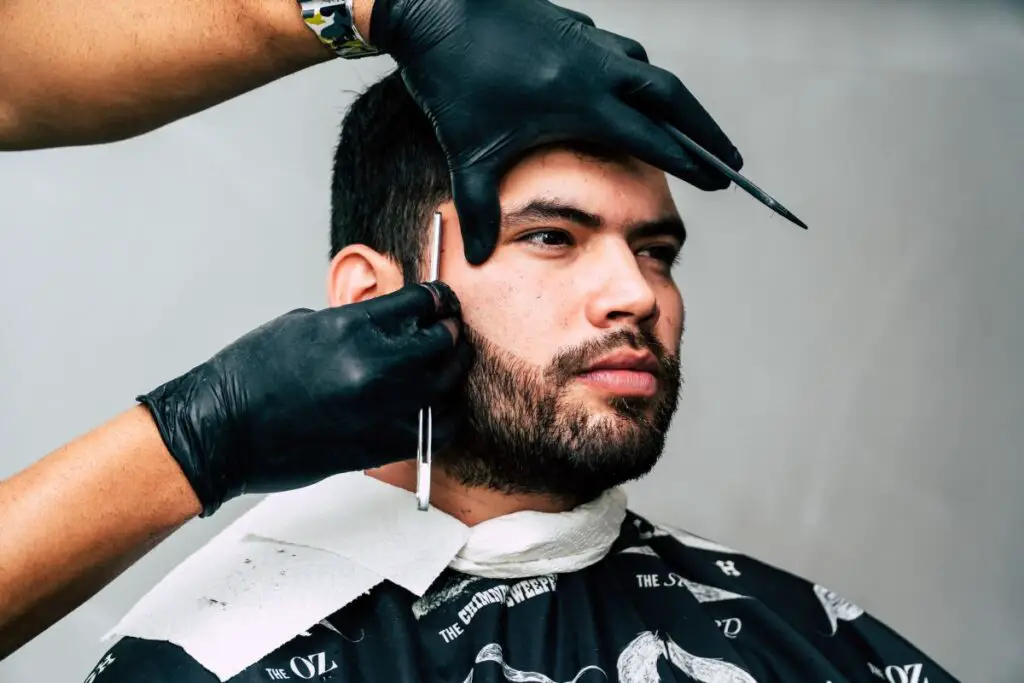Learn How to Love Yourself: Autism Self-Care Ideas
Is your self-care routine feeling a bit lackluster? Are you struggling with your personal well-being, especially if you are trying to balance autism self-care with other personal needs? It’s time to learn how to love yourself and putting yourself first.
 Learning self-care ideas and loving yourself first before other life demands is such a simple concept, yet people struggle with it all the time. But regardless of who you are, and whether you are neurotypical or neurodiverse, it’s critical to take care of yourself take ownership of your own mental health. After all, everyone gets burned out and exhausted every once in while.
Learning self-care ideas and loving yourself first before other life demands is such a simple concept, yet people struggle with it all the time. But regardless of who you are, and whether you are neurotypical or neurodiverse, it’s critical to take care of yourself take ownership of your own mental health. After all, everyone gets burned out and exhausted every once in while.
While a successful self-care routine Is a necessity for everyone, it may be even more important for individuals with differences. One of those differences could be autism, which is a complex neurological and developmental condition that profoundly shapes how a person experiences the world.
An estimated 1 in 36 children have been diagnosed with autism today, and over 5 million Americans across the spectrum face daily challenges others often take for granted. Since children don’t “outgrow” autism and there isn’t a cure, adults on the spectrum need to understand that practicing self-care and tending to personal needs is a life-long skill that is critical to live their best life possible.
Autism comes with a range of traits and differences that frequently make life exceptionally demanding. While autism exists on a diverse spectrum, common characteristics include:
– Heightened or unusual sensory sensitivities to touch, sound, smell, light, taste, and more
– Differences and difficulties interpreting verbal and nonverbal communication
– The need for routine, consistency, and familiar environments
– Intense special interests and fixations
– Repetitive behaviors and stimming
– Overwhelm responses when dealing with too much executive functioning demand
These dispositions in those with autism, combined with society’s lack of accommodation, can lead to immense strain. Loud and chaotic spaces, constant social interaction, unfamiliar situations, sensory overload in stores and public venues, shifting routine – these everyday realities most navigate with ease can be deeply distressing.
This causes those with autism to become overwhelmed, anxious, emotionally drained, and even burned out.
Additionally, many contend with bullying, stigma, isolation, and loneliness as a result of both internal challenges to connecting and toxic societal conceptions of neurodivergence.
These pressures exacerbate already high tension. Without properly addressing personal self-care needs, maintaining mental health and wellbeing while living on the spectrum is extraordinarily difficult.
Self-Care Ideas: Understanding Personal Needs
All people have innate self-care needs. Yet those needs manifest differently between someone with autism and someone who is neurotypical. To truly support those managing autism, care providers, loved ones, and employers must understand these distinctions without judgment.
Likewise, those with autism must deeply understand their own abilities, boundaries, stress triggers, and personalized coping mechanisms. Through self-awareness, evaluation, and introspection of one’s unique autistic experiences in the world, individuals can discover their autism self-care needs.
Common personal needs those with autism should reflect on include:
- Sensory Profile – What senses are most sensitive? What environments and situations cause sensory overload? What sensory experiences are enjoyable?
- Energy Levels – What activities and social interactions deeply drain energy levels? When is recharge time necessary?
- Communication Differences – What communication struggles exist, verbal or nonverbal? When does communication become most frustrating? What aids help connect?
- Special Interests – What topics and activities bring joy and come naturally? How can special interests be integrated into daily life?
- Emotional Regulation – What emotions feel overwhelming? What triggers strong emotional reactions? What helps stabilize emotions?
- Routines and Schedules – What routines provide comfort and predictability? How much structure is needed daily and weekly? How much change and flexibility can be tolerated?
While the above are broad areas those with autism should explore to understand top needs, discovering personalized requirements takes honest ongoing self-reflection. Keeping a consistent journal, logging reactions in different scenarios, communicating needs to a therapist, and expecting evolving self-knowledge over time is key.
Building a Self-Care Routine and Adopting Critical Coping Strategies
When equipped with a strong sense of challenges and needs related to living with autism, establishing personalized coping strategies and self-care regimen becomes vital.
These positive skills, tools, habits, and lifestyle adaptations allow those on the spectrum to proactively nourish mental health and virtually develop resilience while navigating a frequently ableist world.
There are countless positive coping mechanisms those with autism can experiment with:
Coping with Sensory Overload
– Schedule regular quiet time to limit exposure to sensory stressors
– Carry noise canceling headphones, sunglasses, comfortable clothing for sensory control
– Request accommodations in schools, workplaces and public venues to access low sensory spaces as required
– Create soothing sensory experiences through rocking, swinging, deep pressure stimulation
Processing Emotions
– Practice recognizing and logging emotional reactions daily
– Journal out intense emotions rather than internalizing
– Release feelings through physical exercise, punching bags, running, stretching
– Find an empathetic counselor well-versed in autism support
Slowing to Prevent Burnout
– Say no to commitments that stretch limits too thin
– Schedule adequate downtime doing restorative activities away from other demands
– Stim freely using stims like rocking and flapping without shame
– Spend time immersed in preferred special interests and passions
Some lifestyle adaptations for better autism self-care may include:
Lifestyle Adaptations
– Find work opportunities compatible with autistic traits if possible
– Shift diet and nutrition to body’s needs
– Set firm sleep schedule protecting ample sleep
– Join autism community groups for safe connection opportunities
While ensuring basic needs like stable housing, food access, and healthcare must be met first, those with autism shouldn’t underestimate small daily coping strategies that make challenging tasks more palatable.
Building self-knowledge, listening to body needs, and allowing time for self-care helps those with autism better navigate each day, foster community connection, and speak out for support when required.
Learn How to Love Yourself: Asking for Help and Accommodations
A radical form of self-care ideas for those on the spectrum entails letting go of shame around getting assistance. All people have needs, but autism introduces exceptional and complex support necessities most will never understand firsthand.
Asking educators, employers, loved ones, businesses and broader society for more flexibility, empathy driven policy change, patience, nurturing treatment, and specific disability accommodations ensures those with autism get equitable access to public life.
Accommodations remove barriers allowing people on the spectrum to thrive personally and professionally.
Types of public accommodations to request include:
School Accommodations
– Quiet testing spaces with minimal distraction
– Note takers for lecture heavy courses
– Extended assignment deadlines when overloaded
– Alternate teaching materials compatible with learning differences
Workplace Accommodations
– Flexible or part time hours
– Regularly scheduled breaks from open offices that grow overwhelming
– Noise cancelling headphones or shifts with minimal phones or loud equipment
– Written supplemental instructions for multi-step verbal directives
Business and Community Accommodations
– Sensory friendly shopping hours with softened lighting and no music
– Tablets or paper ordering options in loud restaurants
– Clear signage and warnings for events with startling lights or sounds
– Access to retreat spaces when community events grow overstimulating
Though asking for help and publicly asserting needs directly contradicts societal messaging to hide difference and operate independently, recognizing necessary accommodations demonstrates radical self acceptance.
Self-advocacy allows those with autism to conserved sanity in ableist systems. Support shouldn’t be seen as special treatment, but basic equity and care.
Living with Autism Introduces Exceptional Self-Care Practices

For these reasons, those with autism can rarely simply “push through discomfort” the way neurotypical peers may insist is necessary for success. Intense self-care is not a luxury but critical survival tool.
While a self-care routine typically starts with self-knowledge and personal adaptation, finding community support remains integral for people across the spectrum, too.
Locating either in-person or online autism groups facilitates connection with others contending with parallel challenges who innately understand unique needs.
Being immersed in autistic culture fosters friendships, romantic partnerships and chosen family with individuals enduring equivalent struggles. Community spaces might center sharing creative works, chatting about special interests from gaming to obscure pop culture, laughing about awkward social mishaps, or collectively strategizing around life obstacles ableism constantly introduces.
Through relatable stories and raw conversations, suddenly venting emotions or stims seem perfectly reasonable rather than perpetually embarrassing quandaries requiring suppression.
Some life-changing community support benefits include:
– Feeling seen, heard, embraced exactly as one is without masking
– Celebrating talents and modes of thinking that differ from damaging “normalcy” standards
– Exchanging resources around autism school accommodations, stim toys, emotional regulation tactics, communication aids, rights in various settings and more
– Joint activism around causes like lobbying businesses and government for further disability protections
All human beings intrinsically seek places of belonging where masks fall, inhibitions around authority figures dissolve, and full vibrancy stands confidently on display. Yet society tells those with autism masking is integral for acceptance which fuels detrimental mental health impacts akin to marginalization of any minority group.
Through forging disability-led pride and unity, community minimizes trauma inflicted by broader systemic ableism.
Protecting Self-Care Ideas and Progress Through Advocacy

That’s good news! More robust educational accommodations, employment hiring initiatives specifically recruiting those on the spectrum in diverse industries, improved media representation in film and television, fundraising around care access, and governmental policies prohibiting disability discrimination represent hard earned gains.
Without ongoing pressure, however, such advancements are still vulnerable to backslide. Autism community building goes beyond personal support, but further propels structural evolution.
Whether protesting offensive fundraising campaigns capitalizing on outdated autism tragedy narratives or pushing tech companies to hire more neurodivergent engineers, protecting and uplifting the next generation demands all of us increase acceptance through sustained action.
For those newly embracing their identity or confronting late-in-life diagnosis, the sheer breadth of self-determined activism underway feels overwhelming to immediately tackle. However, merely living openly and proudly across diverse autism experiences while navigating challenges as you learn to love yourself with neurodiversity are important steps.
Without question, having a daily self-care routine that works for your personalized self-care helps empower those with autism to weather challenges innate to the condition.
From understanding sensory and emotional needs to employing positive coping strategies and boldly asserting required accommodations, personalized care makes existing on the spectrum less taxing.
In the end, being able to simply live while being authentically oneself feels nothing short of glorious.
Creating A Self Care Wheel to Help with Self-Care Ideas
For many individuals (neurotypical and neurodiverse alike) struggling with mental health, creating a self-care wheel can help you to take better control of all aspects of your physical, mental, and emotional health. Imagine a customized roadmap that guides you through prioritizing and nurturing every facet of your well-being, ultimately leading to a more fulfilling and balanced life.
A self-care wheel provides a visual representation of key areas that contribute to overall well-being. By incorporating elements such as nutrition, exercise, rest, relaxation, social connections, and personal growth into one cohesive framework, this tool offers a fresh perspective on managing stress, improving mental clarity, and enhancing emotional resilience.
How A Self Care Wheel Helps With Loving Yourself First
The self-care wheel is a comprehensive tool introduced by Olga Phoenix designed to help individuals identify and prioritize various aspects of their well-being. It encompasses six different dimensions such as physical, emotional, social, financial, spiritual, and environmental wellness. This holistic approach emphasizes the importance of attending to all these areas in order to achieve overall health and happiness.
By breaking down self-care into specific categories, the wheel provides a clear framework for individuals to assess their current practices and pinpoint areas that may need more attention. This can be especially beneficial for those who struggle with maintaining balance in their lives or feel overwhelmed by the concept of self-care.
The self-care wheel encourages people to consider not only their immediate needs but also their long-term goals, promoting a sustainable and mindful approach to well-being.
Incorporating the self-care wheel into one’s routine can lead to greater awareness of individual needs and habits. By visualizing each dimension on the wheel, individuals can gain insights into which elements they have been neglecting or underprioritizing.
This fresh perspective can inspire positive changes in daily routines and ultimately contribute to a more fulfilling and balanced lifestyle.
Self-care Ideas for Physical Self-Care Practices
Taking care of our physical selves is an essential aspect of overall self-care. Engaging in regular exercise, whether it’s a brisk walk, yoga, or hitting the gym, can have a profound impact on our physical well-being. Not only does exercise improve our strength and flexibility, but it also releases endorphins that boost mood and reduce stress.
In addition to exercise, maintaining a balanced diet is crucial for physical self-care. Consuming nourishing foods such as fruits, vegetables, lean proteins, and whole grains provides our bodies with the nutrients they need to function optimally.
Hydration is another fundamental component of physical self-care; by drinking enough water throughout the day, we support our body’s various functions and maintain overall health.
Prioritizing rest and sleep is vital for rejuvenating the body and mind. Adequate sleep allows for proper recovery from daily activities and promotes mental clarity.
By incorporating these physical self-care practices into your routine, you can enhance your energy levels, reduce the risk of illness, and improve your overall quality of life.
Self-Care ideas for Emotional and Mental Self-Care Techniques
Taking care of your emotional and mental well-being is crucial for overall wellness.
One powerful technique is mindfulness meditation or stoicism, which allows you to focus on the present moment and cultivate self-awareness. By practicing mindfulness, you can observe your thoughts and emotions without judgment, leading to increased emotional resilience and a greater sense of inner peace.
Additionally, setting healthy boundaries in relationships is an essential aspect of emotional self-care. Learning to prioritize your needs and communicate them effectively can help prevent feelings of resentment or burnout.
Another effective technique for emotional and mental self-care is journaling. Writing down your thoughts, feelings, and experiences can provide a cathartic release while also helping you gain insight into your emotions.
Engaging in activities that bring joy and relaxation, such as creative hobbies or spending quality time with loved ones, can also significantly impact your emotional well-being. It’s important to remember that prioritizing your emotional and mental health not only benefits you but also positively impacts those around you.
Self-Care Ideas for Social and Spiritual Well-being
When we think about self-care ideas, it’s easy to get caught up in the physical and mental aspects, but we shouldn’t overlook the importance of social and spiritual well-being.
Cultivating meaningful connections with friends, family, and communities can greatly contribute to our overall sense of well-being. Taking the time to nurture these relationships can provide a sense of belonging and support that is essential for our emotional health.
Addressing our spiritual needs can also have a profound impact on our well-being. Regardless of religious beliefs, finding purpose and meaning in life is crucial for living a fulfilling existence.
Engaging in autism self-care activities that tap into our spiritual side, such as meditation, mindfulness practices, or volunteering for charitable causes can bring us a deep sense of inner peace and contentment. By prioritizing social connections and spiritual fulfillment alongside physical and mental health, we can create a holistic approach to self-care that nourishes every facet of our being.
Self-Care Routine: Balancing Work and Leisure

Finding the right balance between work and leisure is essential for maintaining overall well-being. It’s easy to get caught up in the demands of our professional lives, often leaving little time for relaxation and enjoyment.
However, it’s important to recognize that making space for leisure activities can actually improve our productivity and creativity at work. By allowing ourselves time for hobbies, socializing, and physical activity, we recharge our mental and emotional batteries, giving us a renewed sense of energy and focus when we return to work.
One key aspect of balancing work and leisure is setting boundaries. This can be especially important for individuals with autism.
It’s crucial to establish clear guidelines around when you’re on and off duty in order to prevent burnout. Allocating specific times for relaxation or engaging in activities that bring joy can also help create a healthy separation between work life and personal time. Furthermore, integrating small moments of leisure throughout the workday can provide mini mental breaks that foster a more balanced lifestyle.
Instead of viewing work as all-consuming, consider incorporating small pockets of leisure into your daily routine, whether it’s taking short walks outside or simply pausing to enjoy a cup of tea during the day.
Putting Yourself First: Prioritizing Self-Care in Daily Life
Prioritizing self-care needs in daily life is not just a luxury but a necessity for our overall well-being. It’s all too easy to get caught up in the hustle and bustle of everyday life, neglecting our own mental and physical health in the process.
However, by recognizing that self-care is essential for maintaining balance and resilience, we can make conscious efforts to incorporate it into our daily routines as part of autism self-care.
By taking small steps each day to prioritize self-care, such as setting aside time for relaxation or incorporating healthy habits into our lifestyle, we are investing in our long-term happiness and success.
Remember that self-care looks different for everyone – it could be anything from reading a book to practicing meditation or spending quality time with loved ones. Whatever form it takes, embracing the concept of self-care allows us to nurture ourselves so that we may better navigate life’s challenges with grace and strength.
Autism self-care can make all the difference in having a happy life. It’s important to take a break and go easy on yourself, do something you enjoy so you can relax like listening to music, going on a walk, watching Netflix or whatever you like to do.
After you’re refreshed and rejuvenated you can do your work better, which makes you more productive and happier, there’s no point in pushing through the pain when you’re burned out because your work is going to suffer and it will make you feel worse even more.
The takeaway is putting yourself first and loving who you are. Go ahead and take a break, enjoy yourself, and you can do some quality work. Taking care of yourself is good you and for others because being burned can cause you to snap and lash out at people or have meltdowns.
It’s important to not push yourself too far; it’s okay to take a step back, relax, don’t feel guilty about taking a break because that will just make it impossible for you to relax.
The key is to just remember stoicism and calm yourself. Practicing self-care is important, so always make time for relaxing and enjoying life. It’s good for you, your loved ones, and everyone else around you.
Autism in Adults: Living, Learning, and Overcoming Challenges for a Fulfilled Life
Autism in adults requires additional support and coping skills to achieve independence in today’s world.
Learn more about ways adults can live fulfilled lives and the challenges they face.
- 14 Practical Ways for Staying Motivated to Unlock Full Potential
- Autism and Independence: 7 Skills That Empower Individuals to Thrive
- Dangers of Social Media Addiction: How To Leave the Screens And Face the Real World
- Autism Volunteer Opportunities: 5 Ways Helping Others Fosters Acceptance
- 8 Heartfelt Ways Autism Emotional Support Animals Transform Lives
- Are You An Adult With Autism? Here Are 6 Signs
- Autism After High School: Is College the Next Step?
- Autism vs Asperger’s Syndrome: What You Need to Know
- Autism Disclosure: Is Revealing Your Disorder Helpful or Hurtful?
- Work and Autism: What Employers Should Know About Hiring People with Neurodiversity
- Drivers with Autism Can Achieve Success Behind the Wheel
